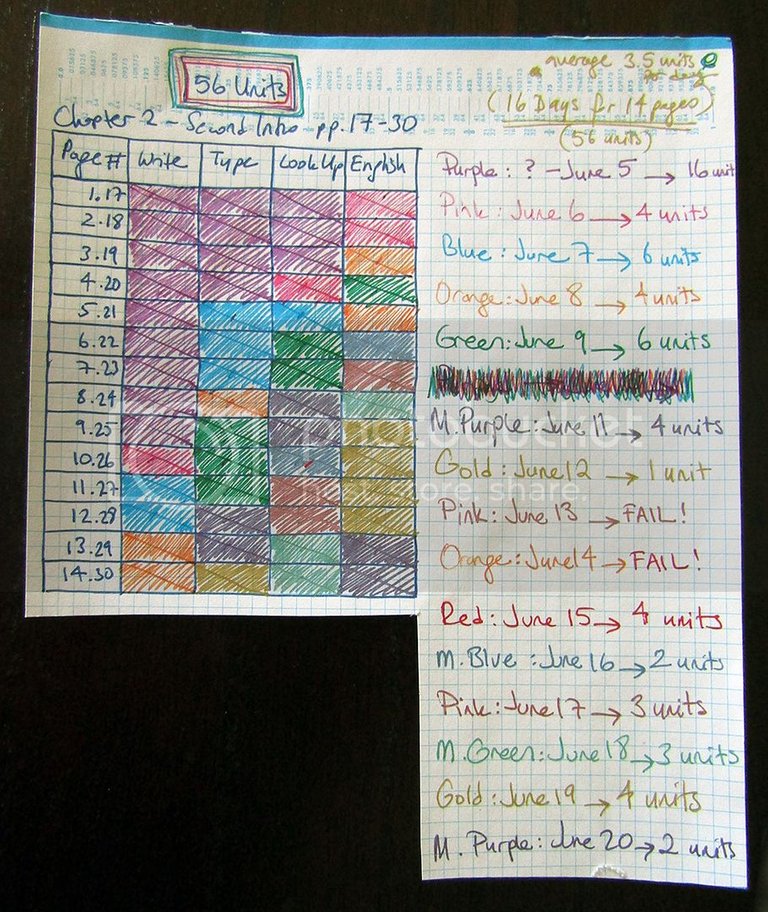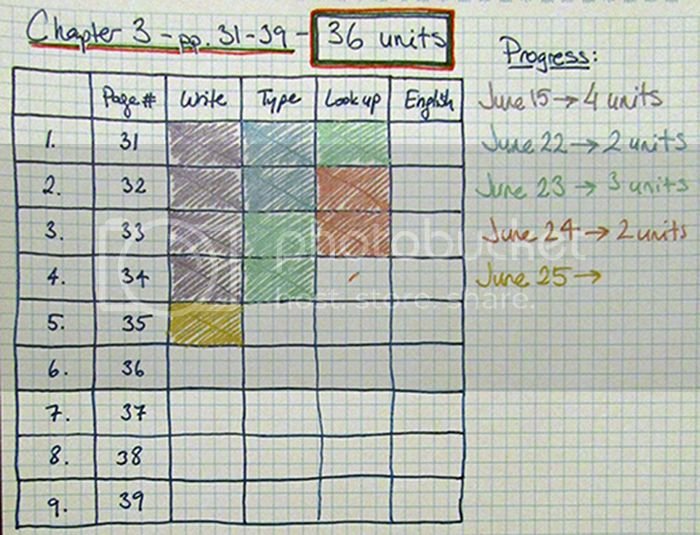A few months ago I took on a new research project. I started translating a 300+ page book from Ottoman Turkish to English. The first month was a struggle. I was working on different tasks (transcribing, typing, looking up unknown words, and actual translation) at varying rates and certainly at a very slow pace. Since the project is not a one-week or one-month gig and its end point is so far in the future I wasn’t dedicating the appropriate amount of time necessary to make visible progress—and I didn’t realize this. With no deadline in sight, I would go a few days or up to a week without so much as touching the project, after all, what’s one completed page in an ocean of remaining work? Finally, I started feeling pressed to complete at least the first chapter (14 pages). Roughly looking at what I accomplished I thought it was half done. Nevertheless, it took me days to “finalize” it.
Once I finished the first chapter, I decided that I needed to hold myself accountable for my progress. Incidentally, as I was wrapping up the previous chapter, I had already started making headway in the second chapter which was also 14 pages. At a glace, I estimated that I was about halfway done. Then I concocted a graph to track my progress and see, really, where I was in the chapter.

I made a table with a column assigned to each task to be considered for each page:
- First read-through (transcription from Arabic script into Latin letters)
- Type Turkish transcription
- Look up unknown words
- Translate from modern Turkish to English
Each line represents one of the 14 pages in the chapter.
Now, I fully understand that such tables can be created in Word or as Excel spreadsheets. But I am a bit Medieval (and definitely tactile) at heart. I print out each chapter because I enjoy hand writing my notes on the pages and any time spent away from my computer screen is categorically a good time. Likewise, I enjoy drawing. As such, drawing up a new “progress graph” for a new chapter is actually a very relaxing and satisfying task for me. Besides, I even purchased new metallic Pilot G-2 pens (the nerds among you will understand exactly what I’m talking about)… which make all of this ten times more fun!
And that is part of the point. I want to make this project and the processes involved as fun as humanly possible since this book and I will be spending a lot of time together so I better learn to love it in large doses:)
Consequently, after creating a method of quantifying the amount of work completed and the amount of work that remains, I was able to see just where I stood in the chapter. Far from my initial, eye-ball assessment, I was about 28% of the way through the chapter. Good to know! On the above graph, my initial assessment corresponds to the first entry and purple blocks in the upper left corner which are marked in the right margin as
“Purple: ?- June 5 16 units”
The gamification of the process comes here: every time I finish one of the four tasks for a page I get to color in that block with the awesome metallic pen of my choice for that day. Then I keep a record of how many blocks I filled up in the right margin. This way, I can compete with my best days and feel shamefully inadequate on days where I complete nothing. The graph never forgets! For mildly compulsive people like myself, the promise of getting to color in a block is often motivation enough to keep going and finish one more page before the day is over!

Aesthetic appeal: Above is the new, third chapter that I am currently working on. It has only 9 pages. In addition to satisfying my desire to color in blocks, these charts allow me to have an aesthetic experience. I get to choose the color of pens I use and create fun and flirty color patterns as a result. These are the kinds of things that make sitting down to (yet) another day of translation exciting. Being able to visualize my progress (and in such a beautiful way) motivates me further to get this job going and finish up pages, then chapters, then eventually the entire book.
Of course, this “trick” may not work for everyone. That is why it is important to understand yourself and be perceptive and receptive to what motivates you. Once you tune into those kinds of mental demands then you can cater your workflow to meet these demands and enhance your own productivity. Since creating the graphs, I’ve been more consistent and enthusiastic about sitting down to this project every day.
Don’t get me wrong, I am enjoying the hell out of this translation and wouldn’t trade it for anything right now. It is an extremely fulfilling endeavor. But everything in excess—and 300+ pages of Ottoman Turkish is excessive, indeed—can get a bit boring and challenging. And really, the greatest challenge when you are self-employed like myself, is getting yourself to sit down and do your work. Since I work from home, no matter how much I love the translation, it is always competing for my attention with other research projects and household tasks… such as my garden… and cooking… and hiking… and Steeming… etc.
That's cool, I'm going to try it out! Upvoted
Fabulous! Let me know how it works out:)
Are you turkish ? I must say that it shouldn't has been an easy task... Aferim sana !
Sağolasın:) Evet, melezim. Burada kişisel meraklarımdan, şundan bundan bahsediyorum. Ama daha profesyonel bir account’um var: @yasemin-gencer ve orada Osmanlıca-Türkçe-İngilizce tercümelerime ve araştırma konularıma yer veriyorum. Memnun oldum ve Steemit’a hoşgeldin!
Another great post amazing job
Keep it up
Upvoted you again
Thank you again! Self-discipline is the name of my game:)
nice idea, you are really genius :-)
So true! It's the best career choice I've ever made:)